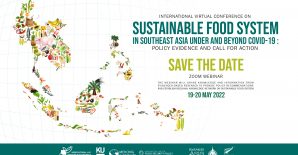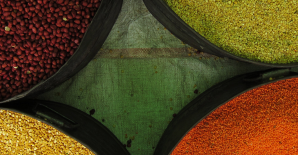Overview
More than 555 million people in Asia still go hungry every day and, while some progress had been made, malnutrition remains a critical issue. Stunting levels remain high in many countries while at the same time obesity rates in more than half of Asian countries are increasing rapidly due to shifting diets and consumption patterns (IFPRI 2015). In Asia, meeting food needs is therefore not just about quantity—quality is also important. By 2030, an additional 3 billion consumers are expected to join the middle class changing the composition and structure of value chains to meet new dietary habits. Supplying this growing population with adequate, nutritious and affordable food is a challenge.
The multiple stresses caused by rapid urbanization, industrialization, and economic development will be compounded by climate change. Climate change will also require agricultural systems to adapt to more frequent and severe shocks putting many farm livelihoods at risk. These trends are also deeply worrying for poor consumers who spend as much as 50 to 70 percent of income on food with limited ability to cope with rapidly rising prices (Von Braun et al 2008, Heady and Fan 2008). Measures are needed to increase agricultural investments to help advance long-term productivity but also to help adapt to climate change.
None of these measures can be carried out without the right policies. This means policymakers creating a regulatory framework that encourages the development of new food production technologies, produces an environment where nutrition is valued, and stimulates investment in the agri-food system by the private sector. Improved policy can also improve make food value chains more inclusive to smallholder farmers, who produce most of Asia’s food, giving them greater access to markets and higher income.
The Regional Strategic Analysis and Knowledge Support System for Asia (ReSAKSS-Asia) is facilitated by IFPRI with the goal of mobilizing research to inform policies that reduce poverty and hunger in Asia. It accomplishes this through the creation and strengthening of a regional network of food policy researchers, analysts, and development practitioners to make research results, data, and information readily available to policy makers.
ReSAKSS-Asia achieves this goal through various means: 1) through joint research projects which build analytical policy research capacity for food and nutrition security; 2) knowledge management of existing data and research products; and 3) by bringing together regional partners to promote policy dialogue and share lessons and experience in agricultural and food security policy across countries. Many of the researchers we work with are highly influential within their respective countries, fields, and networks. They are also thoroughly engaged within their countries’ and regional policy systems and are important sources of information, providing expert analysis, policy dialogue and advice and delivering the evidence necessary to make sound policy decisions.
Our vision of the ReSAKSS-Asia network is one in which these members routinely collaborate with each other and IFPRI to share experiences, lessons, and expertise that improves the effectiveness of their engagement. We are supporting policy relevant evidence sharing across countries such that network participants are sought after by country and regional policy makers to draw on their expertise. We further see changes occurring in regional priorities as a result of research conducted by the ReSAKSS-Asia network. At the country level we expect national development strategies to be more inclusive and mindful of regional priorities and a more judicious usage of policies that impact the food security of neighbors and trade partners.



